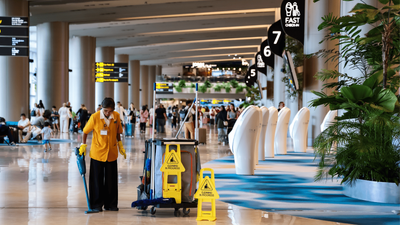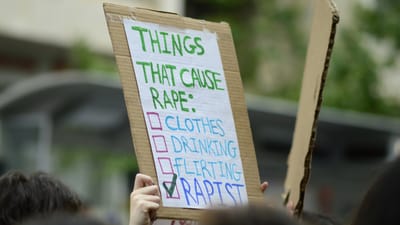Proposed amendments to the Mental Health (Care and Treatment) Act 2008 and the Police Force Act 2004 are about to be codified and legitimised in Parliament, next week. These will afford the police, amongst other things, enhanced powers to apprehend persons suspected of a mental illness before they commit a potentially harmful act, either to themselves or others.
These amendments are well-meaning. We should not second guess police decisions on apprehension too readily as the police are seeking to prevent harm and save lives. But there’s a risk that these amendments might be counter-productive to society if, for instance, excessive force during apprehension worsens the trauma of the person concerned, or the apparent criminalisation of those with mental health issues exacerbates social stigma.
I believe that we—persons with psychiatric histories, mental health professionals, the police, and community health service providers—should all work together to sort out issues and challenges arising from the amendments.
The Mental Health (Care and Treatment) Act can be traced to a law Act 36 that was first enacted in 1858 and passed by the Indian Government. Then, policemen were allowed to apprehend persons and bring them before a Magistrate or Commissioner of Police who was allowed to commit them (usually permanently) to an asylum. One result of this was overcrowding in the asylum. Patients with no beds to sleep in were put unsupervised in the workroom where they may have posed a danger to themselves or others. Today, police involvement may result in emotional responses that are positive, including appreciation or acceptance. More commonly, however, police involvement may lead to negative emotions, causing or exacerbating fear and distress in persons suspected of mental illness. This could be due to the coercive aspect of police intervention that includes restraining persons suspected of mental illness, which may be experienced as physical violence or violation. While restraint, arrest, and detention might be seen to be necessary in complex situations in mental health, the adverse psychological impact of police intervention on persons suspected of mental illness needs to be more fully recognised. It’s with all that in mind that we should consider, first, the proposed amendment in the Mental Health (Care and Treatment) Act 2008 subsection 2aa: “it is sufficient that the danger to life or personal safety is only reasonably likely to occur and need not be imminent, and actual harm is not required…”
This shifts 1) danger from imminent to reasonably likely, and adds that 2) actual harm is not required for the police to apprehend persons suspected of a mental illness. This may be helpful in suicidal situations where there is a critical response time element, and support early intervention treatment of persons experiencing a first episode of psychosis.
But I object to what may be excessive force or unnecessary intimidation during involuntary apprehension, including handcuffs and locking up persons in a padded cell. This well-meaning help from the police intended to protect persons and the public may regularly cause rather than reduce trauma for persons in distress, which could ultimately result in an increased burden of care placed on the mental health ecosystem. This is not to say that there are no instances of individual police officers being kind and gentle towards persons suspected of mental illness, but this would depend on their individual sense of compassion and thus individual discretion, rather than being specifically trained to do so.
Next, consider the amendment in sub-section 26F(3): “Division 3 of Part 6 of the Criminal Procedure Code 2010 applies to an apprehension…as it applies to an arrest, with any exception or modification that the Minister may prescribe in the Police Regulations.”
I object to the addition of a clause that apprehension of persons suspected to have mental health issues will be no different from a conventional arrest. Following efforts by the community and organisations such as the Association of Women for Action and Research and Silver Ribbon Singapore, suicidal persons are no longer to be treated like criminals, and Singapore has decriminalised suicide via the Criminal Law Reform Act 2019. But if I understand the proposed amendments correctly, it means that persons suspected to have mental illnesses may now be legally arrested in the same way that criminals are arrested, given the amendments. Perhaps this is simply how legal terminology is used, but to a layperson, it seems to read that non-suicidal persons in mental distress may be arrested as criminals if they are deemed a public nuisance.
I object to persons with mental illnesses being punished for having a mental illness. How does this square with making mental health a national priority and improving care, as Lawrence Wong, deputy prime minister and designated next leader of the ruling People’s Action Party, announced and more than 20 members of Parliament affirmed? When persons suspected of mental distress are treated like criminals, they are handcuffed and searched if they resist being apprehended, and subsequently detained. A systematic review of 56 papers conducted by six mental health researchers and published by Cambridge University Press in 2019, found that persons apprehended feel a sense of criminalisation, shame, a loss of credibility, and a sense of disruption of ordinary living, inducing a deep sense of pessimism regarding their future. If the state is stigmatising in the arrest of individuals suspected of mental illness, it sets the tone for subsequent stigmatising care provision.
I object to our belief that all persons acting differently are public nuisances and should be arrested. What they actually need from the public and the police are care and compassionate treatment. Persons suspected of mental illness are typically vulnerable rather than threatening. In a study on psychiatric aspects of homicide in Singapore, researchers found that the majority of offenders (84.5 percent) were not affected by mental illnesses such as depression or schizophrenia. Police interventions that liken apprehensions to arrests seem counter-intuitive to good intentions seeking to ensure that the person apprehended receives the appropriate help while minimising trauma.
I object to policemen being the sole first-responders in a mental health crisis response. This, we should recall, has been a problematic approach since Act 36 was first enacted in 1858.
I object to actions that make it harder and not easier for persons needing mental health treatment to accept help and overcome denial. Police involvement in mental health crisis situations—as opposed to non-police involvement and referral—can lead to greater resistance to mental health treatment by persons with mental health issues. A 2019 systematic review of 77 studies published in The Lancet on the social and clinical correlates of involuntary psychiatric detention highlighted that there is a strong association between police intervention and persons in mental distress resisting mental health treatment. As such, mental health treatment is considerably more likely to be voluntary if the referral is through a general practitioner or family doctor. The review also reiterated that the implementation of involuntary treatment is associated with, amongst other factors, positive symptoms of psychosis, perceived risk to others, and clinician-rated lack of insight. This points to the counter-productive outcomes of people apprehended by the police in accepting and seeking further treatment of their mental health condition.
I object to significant delays in transferring persons suspected of mental illness to a medical facility. During situations of delayed action in getting persons suspected of mental illness into hospital, arrested individuals are typically detained in police lock-ups or padded cells which are intended to provide safety to the individuals. While some persons experiencing distress may, especially later on in their recovery journey, feel gratitude towards the police for supporting them during a time when they were unaware of the severity of their condition, this is by no means the experience of all persons suspected of mental illness. Rather than providing safety, the police cells can be experienced as distressing and unsafe places. Because limited or no information is provided to the person suspected of mental illness, the arrest and detention of apprehended persons may be commonly experienced as confusing and frightening.
I would know. As a non-suicidal person in the throes of my first and only episode of psychosis, I had been arrested in 2008 by the police. I remember that I was willing to go to the police station but was nevertheless handcuffed. I did not resist being handcuffed. It was certainly not clear that I was about to do something to harm myself or others. Subsequently, I was held down firmly by not one or two but four male policemen and forced to provide my thumbprint on a digital scanner when I was uncertain about the reason for providing my thumbprint. I was marched down a corridor and detained for what seemed like several hours in a padded cell at the police lock-up. I believe I was arrested at around 6 or 7pm and only sent to the Institute of Mental Health the next day. I surmise that I was detained by the police for over 10 hours. I do not remember being told where I was going, what would happen, or how long it would take.
I object to the human dignity of persons suspected of mental illness being violated in the face of disempowering actions.
The amendments emerged from a case of policemen acting in bad faith. This is the case of Mah Kiat Seng. According to an article published in CNA on 7 March 2024, the High Court ruled that a man was wrongfully arrested by the police in 2017. In response to this, the MHA was considering either challenging the judgement, or amending the laws. According to CNA in a different article, the Law and Home Affairs Minister asserted that the High Court judgement would lead to defensive policing, which would ultimately be “detrimental” to Singapore’s safety and security. In plain language, the argument seems to be that the police won’t do their job if they are held accountable. But this may be contested. Surely many policemen would continue to do their jobs and do them well, in a situation where there are checks on whether they are doing their work effectively. The unfettering of police powers towards this highly marginalised and vulnerable group of persons in mental distress means that such powers could be also subsequently applied to other groups in society. Overall, this signals that in general, the police should not and cannot be challenged. There is a whiff of “first they came for…” here and the possibility of expanding police powers further throughout society.
In relation to this case of Mah, Philip Jeyaratnam, high court judge, assessed that the medical professional’s integrity is as important as the integrity of the police in cases of police intervention. Dr Lin Hanjie from Healthway Medical Group was the examining doctor of Mah. According to a news article by TODAY, Lin was found to have retrospectively reported that Mah was constantly talking to himself, but CCTV footage did not support this. In addition, Lin reported that Mah had no complaints, omitting Mah’s assertion that he was experiencing pain in his abdomen which he claimed to be caused by an assault by the police. This complaint of Mah’s and the doctor’s examination of his abdomen was subsequently found to be an omission when the CCTV footage was replayed. It looked as though Lin had embellished what should have been a neutral medical report and omitted important details of a medical examination. While the majority of medical professionals would properly document the details of their medical examinations, this lapse seems to indicate that the reports provided by medical professionals in involuntary cases of apprehension and admission has the potential to be carelessly administered. It is worrying that there has not been an explanation to the public on the actions of Dr Lin Hanjie from the Singapore Medical Council.
In short, these proposed amendments may not ultimately achieve the goal of better supporting persons suspected of mental illness, nor indeed better protection for society at large. It may be a good thing for the authorities to reconsider the desirability of these amendments. What’s preferable is a holistic community approach that encompasses everybody from volunteers to healthcare professionals and the police. We need to include the views of persons with lived experience who may directly be impacted by these amendments.
Mental illness is not a crime, and our laws should not be constructed to make it so.
I object.
Chan Li Shan is a patient advocate with the Singapore National Healthcare Group Population Mental Health Steering Committee, committee member of the Singapore Association for Psychiatric Rehabilitation, and country representative of the Global Mental Health Peer Network. She was formerly co-chairperson of the Voices of Experience Committee of the Institute of Mental Health and board member of Silver Ribbon Singapore. She is currently a PhD student at the University of Hawaiʻi at Mānoa. Li Shan is the author of A Philosopher’s Madness (Ethos Books: 2012).
If you enjoy Jom’s work, do get a paid subscription today to support independent journalism in Singapore.
Letters in response to this piece can be sent to sudhir@jom.media. All will be considered for publication on our “Letters to the editor” page.






